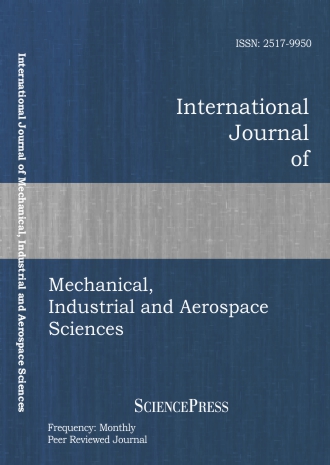
Scholarly
Volume:3, Issue: 6, 2009 Page No: 724 - 728
International Journal of Mechanical, Industrial and Aerospace Sciences
ISSN: 2517-9950
1420 Downloads
A Numerical Strategy to Design Maneuverable Micro-Biomedical Swimming Robots Based on Biomimetic Flagellar Propulsion
Medical applications are among the most impactful areas of microrobotics. The ultimate goal of medical microrobots is to reach currently inaccessible areas of the human body and carry out a host of complex operations such as minimally invasive surgery (MIS), highly localized drug delivery, and screening for diseases at their very early stages. Miniature, safe and efficient propulsion systems hold the key to maturing this technology but they pose significant challenges. A new type of propulsion developed recently, uses multi-flagella architecture inspired by the motility mechanism of prokaryotic microorganisms. There is a lack of efficient methods for designing this type of propulsion system. The goal of this paper is to overcome the lack and this way, a numerical strategy is proposed to design multi-flagella propulsion systems. The strategy is based on the implementation of the regularized stokeslet and rotlet theory, RFT theory and new approach of “local corrected velocity". The effects of shape parameters and angular velocities of each flagellum on overall flow field and on the robot net forces and moments are considered. Then a multi-layer perceptron artificial neural network is designed and employed to adjust the angular velocities of the motors for propulsion control. The proposed method applied successfully on a sample configuration and useful demonstrative results is obtained.
References:
[1] T. Fukuda, A. Kawamoto, F. Arai, and H. Matsuura, "Mechanism and